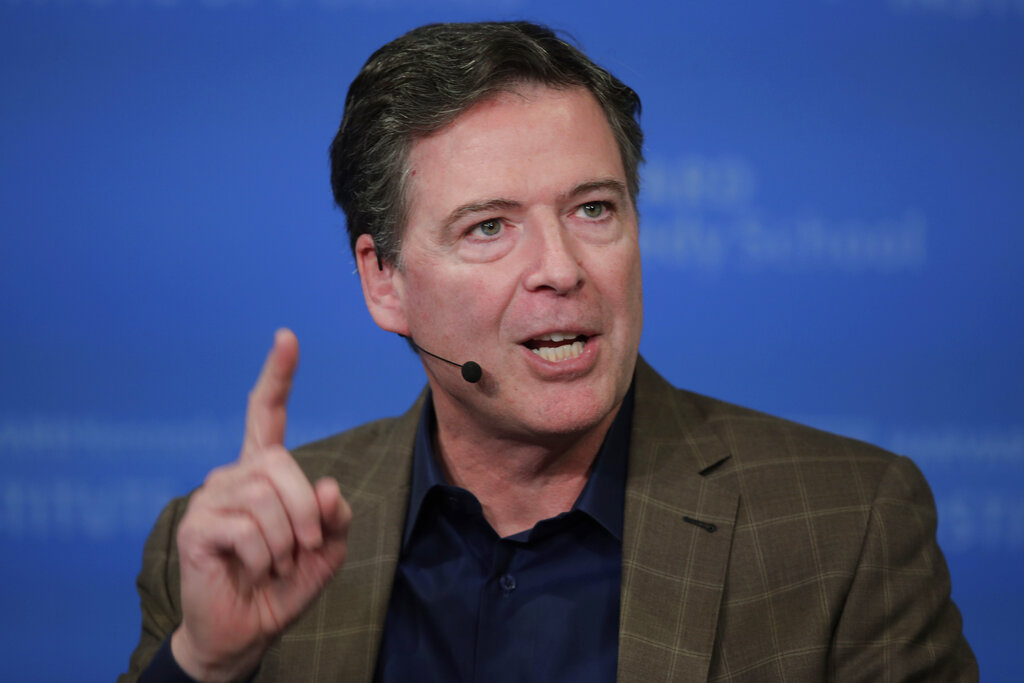A glimpse into James Comey's deceit

The Controversial Actions of James Comey
The recent indictment of former FBI Director James Comey has sparked significant debate, though the specifics of the charges remain unclear. Prosecutors are expected to provide a detailed list of the alleged lies Comey told under oath. While some critics argue that the entire situation is a disaster, the full scope of what happened remains uncertain.
However, one event stands out clearly: the actions taken by Comey in 2017 during the early days of the Trump administration. At the time, there was widespread speculation about potential collusion between the Trump campaign and Russia in the 2016 election. As the head of the FBI, Comey was leading the "Crossfire Hurricane" investigation into these allegations.
On January 6, 2017, Comey used a briefing on Russian election influence as an opportunity to confront then-president-elect Donald Trump with the so-called "pee tape" allegation from the debunked Steele dossier. This occurred in Trump Tower in New York. After the briefing, Comey asked for a private meeting with Trump, where he accused him of being recorded with prostitutes performing sexual acts in a Moscow hotel room in 2013. Trump was left stunned, unsure if the FBI director was setting him up for something.
For Comey, this was part of the Crossfire Hurricane investigation, allowing him to question Trump under the guise of a security briefing. After the meeting, Comey quickly returned to an FBI car to write his account of what Trump had said, which was analyzed by the Crossfire Hurricane team. These details are drawn from the author’s book Obsession, which explores the pursuit of Trump.
Comey later expressed concerns that Trump might think he was pulling a "J. Edgar Hoover," referring to the FBI's first director known for using compromising information against politicians. To reassure Trump, Comey decided to tell him that the FBI was not investigating him. He believed this would calm the situation, and it seemed to work at first.
But was it true that the FBI was not investigating Trump? According to Obsession, Comey believed he was being clever by assuring Trump that he was not under investigation, even as the investigation continued. However, other FBI officials warned him that his statement was misleading. Despite this, Comey maintained that his statement was "literally true" because no counterintelligence case file was open on Trump at the time.
This untruth soon became public when Comey spoke privately to members of the Senate Judiciary Committee. He assured them that Trump was not under investigation, which confused many lawmakers. When he later testified before the House Intelligence Committee, he gave a different story, stating that the FBI was investigating the Russian government's interference in the 2016 election, including any links between the Trump campaign and Russia. However, he refused to confirm whether Trump himself was under investigation.
Sen. Charles Grassley (R-IA) was particularly upset, expressing frustration that Comey was saying one thing in private and another in public. Grassley demanded transparency, but Comey’s approach remained consistent—private reassurances and public evasiveness.
Trump, already concerned about Comey’s actions, invited him to the White House for dinner. During their meeting, Trump reportedly asked for loyalty, a request that likely stemmed from the previous encounter at Trump Tower. What Trump did not know was that Comey, after the meeting, wrote down his version of what Trump had said, just as he had done after the Trump Tower meeting.
On May 9, 2017, Trump fired Comey. A week later, the New York Times reported that Trump had asked Comey for a pledge of loyalty, which he refused. This led to a media frenzy, with some comparing Trump to a Mafia boss. Comey, however, was the source of the leak, though he did not directly provide the information. Instead, he gave notes to a friend, who shared parts of them with the Times. Comey later claimed he used a cutout for various reasons, but the purpose was clear: to prompt the appointment of a special counsel.
Despite his efforts, the Mueller investigation found no evidence of collusion between the Trump campaign and Russia. While Comey’s actions caused significant political damage to Trump’s presidency, they also led to criticism of his conduct. The Justice Department’s inspector general, Michael Horowitz, condemned Comey for leaking sensitive information and setting a dangerous example for FBI employees.
Now, Comey faces criminal charges, though the specific nature of the accusations is still unclear. While this episode does not prove that he lied under oath, it raises serious questions about his credibility and trustworthiness. For many, it is a reminder that no one should ever fully trust a word James Comey says.
Post a Comment for "A glimpse into James Comey's deceit"
Post a Comment